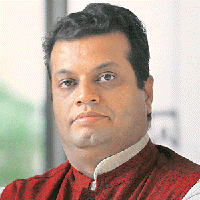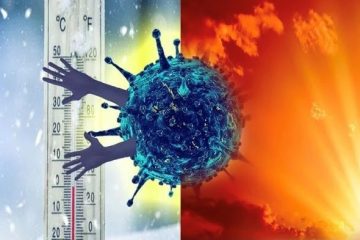Medical experts in India say that the realization of a COVID-19 vaccine is unrealistic, as the shortest time it has taken to produce a vaccine was for mumps, which took nearly four years of research. On average, vaccines take 5 to 10 years to develop and in many cases it can take many more. They believe that the development of a vaccine to tackle a new virus, such as the novel Coronavirus in a short time, is humanly impossible.
Dr. Subhash Hira, Professor of Global Health at the University of Washington and former Technical Advisor to Ministry of Health, New Delhi was invited to attend the virtual Global COVID-19 Research & Innovation Forum July 1-2, held in Geneva, while Dr. Tedros Adhanom, Director General, WHO was in attendance. This meeting critically reviewed the research progress and findings of several vaccine studies currently underway globally and their associated impact to the response of COVID-19.
When asked about the chances of a COVID-19 vaccine for use by mid-August 2020, Professor Hira said, “Such short timelines are difficult to meet in the field of biology, but they certainly show a positive connotation of national determination towards self-reliance in the fields of science and health.”
Dr. Hira added that so far, there was precedence in science, whereby once vaccine efficacy is established, the world does not wait for findings about immunity and neutralising antibodies. A classic case he cited was that of the Hepatitis B vaccine that was introduced for human use in 1986 after 20 years of research wherein immunity markers remained unresolved. It took another 20 years after the initial use of the Hepatitis B vaccine for its neutralising antibodies and immunity questions to become evident to the scientific world.
‘Only solution is herd immunity’
Dr. Wiqar Shaikh, senior asthma and allergy specialist added, “It is unrealistic to expect a fully effective vaccine for at least two years or may be never at all. In the absence of a vaccine for COVID-19, the only solution for this pandemic is the development of herd immunity. In the history of medicine, no vaccine has been developed in less than 5 years and it generally may require 10 years or more of research. The record for the fastest developed vaccine, is the mumps vaccine, which was developed in a record four years, between 1963 and 1967.”
Interestingly, enough reports reveal that the Oxford vaccine for COVID-19 has failed the preclinical test in animals. When swabs of monkeys were tested for presence of SARS-Cov2, there was no significant difference between vaccinated and unvaccinated monkeys. If therefore, the vaccine works the same way in humans, vaccinated individuals will continue to be active spreaders of COVID-19.
Until July 2020, 218 vaccine candidates globally were in various stages of development. Of these, only 24 are undergoing clinical trials, Dr Shaikh added.
‘Hasty development is dangerous’
“The current pandemic, and the need to stop it should not lead to hasty development of a vaccine without adequate positive scientific studies. Commercial and economic greed cannot override, established scientific principles. Cutting corners and attempting to drastically shorten the stages of vaccine development could be dangerous to human life. A classic example is the dengue vaccine (Dengvaxia). In November 2017, a vaccine against dengue was announced in the Philippines. After the vaccine was administered to children during human trials, over 600 of them died, because of complications from it. While the vaccine had taken 20 years to be developed and cost $1.5 billion, the Dengvaxia disaster could be repeated by a half-baked, hastily developed vaccine for SARS-Cov2,” Dr Shaikh said.
He said it was shocking that despite the failed animal experiment, the Oxford vaccine was allowed to proceed to the stage of human trials. “How is it possible that almost all vaccine makers claim they will be developing one within this year?” The lead researcher, Sarah Gilbert of the Oxford vaccine has admitted in the media, that its trials are expected to continue until August 2021. The WHO has clearly mentioned that one cannot expect a COVID-19 vaccine before 2021,” Dr Shaikh added.
He further stated, “Despite several years of research we have not yet developed, a safe and effective vaccine for other viruses like dengue, SARS-Cov1, MERS (Middle East Respiratory Syndrome), Swine Flu (H1N1), Ebola Virus, HIV (AIDS), which itself explain that it is humanly impossible to have a vaccine for SARS-Cov2 within six months of the pandemic outbreak.”
An effective vaccine for SARS-Cov2 should stimulate the immune system to first produce antibodies, and more importantly, to produce memory T cells (they have immunological memory), exactly like a person who is exposed to the disease. After getting vaccinated, an individual should develop complete immunity to SARS-Cov2, without ever contracting the disease.




0 Comments